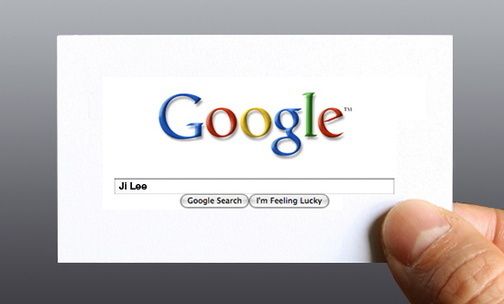It’s not exactly breaking news that the San Carlos market has been incredibly competitive in 2012. The dramatic shift in the market since the first of the year has been rewarding for some, frustrating for others. No matter which group you fall under, expect your potential contract partners to do their homework on you. You’re being googled.
Why It’s Happening
It’s happening more and more and it makes sense that prospective buyers and sellers want to know all information available regarding someone they may end up being in contract with. When an offer comes in, a seller has the buyer’s name, perhaps some general background information on what they do for a living and that’s all any seller needs to begin a comprehensive online search. From the buyer’s perspective, they will have the full names of the sellers, their address and perhaps some general information on why they are selling…..again, more than enough to complete their online search as well.
So, what, specifically, are buyers and sellers hoping to find online about each other? Here is a small list in order of priority:
(1) Their job. For example, a potential buyer’s job may influence a seller’s view on what the buyer can afford or the seller’s comfort with any risk the buyer presents in terms of completing the transaction.
(2) They are looking to build a file on each other. They want to get a feel for what the other party is like in a non-business like setting. An online search may reveal other interests of the buyer or seller, such as volunteer activities.
(3) Facebook and LinkedIn. If you do not want potential buyers and sellers looking at your Facebook page, please set the appropriate privacy settings. If you are an active user, it is an immediate insight into your life that you probably do not want a potential buyer or seller viewing. The same applies to LinkedIn. They will search for any public information and then common connections.
How This Can Go Wrong….Quickly
Doing your homework as part of any major transaction is always a good idea. However, sometimes there is just enough information to lead buyers and sellers down the wrong path. Here’s an example: I had a client who worked for a company that just had a very large IPO. The potential seller googled her and found out this information. Upon seeing this, the seller thought my client could pay more for the property than what she was offering. What the seller did not know is that my client, being very new to the company, had a very high strike price for her option when compared against the publicly traded value. The seller became frustrated when we did not move incrementally from our offer. This frustration took the seller away from the real question surrounding his property, which centered on the true market value of the property, not what someone could afford to spend.
Google Yourself
If you are a current buyer or seller, google yourself. Find out what is readily available about you and be prepared to get in front of it when you are submitting or taking offers. If you don’t, someone else will.






2 Comments
Bob,
Another interesting article. I was wondering if buyers can complete the transaction anonymously. It seems like that would have protected the buyer in the case you describe.
I remember reading when Mark Zuckerberg bought his house in Palo Alto that his name did not actually appear on any of the contracts. Is buying anonymously something practical for other buyers as well? It seems awfully instrusive, at least to me, for buyers and sellers to try to learn more about each other than asking for preapproval and/or proof of funds.
Todd
Hi Todd,
Thanks for the post. The only way to purchase anonymously would be to purchase through a shell LLC or Corp which you could fund prior to completing the purchase…..I am imagining this was the case for Zuckerberg. The only limitation with this is that you will need all-cash offer, as banks will not lend to any corporate veil. Also, banks require that the borrowers be named on the on the purchase contract. So the short answer to your questions, is that yes, a fully funded LLC or corporation could shield the identity of the purchaser.
Bob